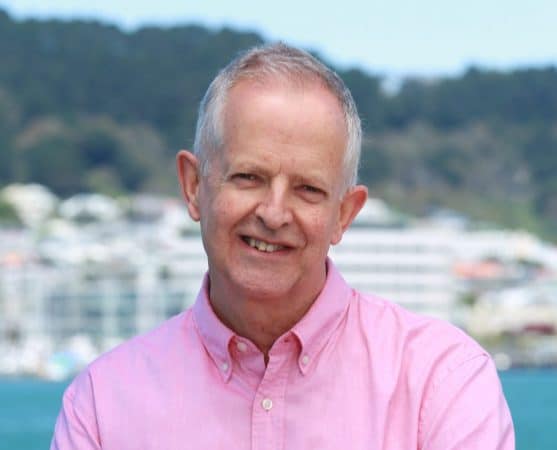
Andrew Becroft
Wellbeing is a word that has been thrown around a lot lately, writes Children’s Commissioner Andrew Becroft, especially in politics.
PART OF THE Government’s ‘Wellbeing Budget’ will play a huge role in the implementation of the Child and Youth Wellbeing Strategy.
The strategy is a key requirement of the Child Poverty Reduction legislation, which passed into law in December 2018. The requirement to have such a strategy is a first for New Zealand.
Another critical part of the legislation is the requirement to gather the views of children and young people – another first-time requirement. These views will help ensure the strategy is in tune with what children and young people think and want, rather than merely what policy makers believe they should have. Too often, adults talk about ‘wellbeing’ as the absence of negatives. Children and young people often flip that on its head. They see ‘wellbeing’ as the presence of positives.
Our office worked in collaboration with Oranga Tamariki to gather the voices of over 6000 children and young people late last year, specifically for the Child and Youth Wellbeing Strategy. We spoke directly with children and young people, and we heard their opinions through a survey, to find out what they think a “good life” is, and what they need to have a good life in Aotearoa New Zealand.
A lot of the children and young people spoke about how they need to be supported in order to live a good life, and how their whānau need to be supported too. Young people with disabilities spoke about the effect of their disability having a significant impact on their families’ finances. Some families struggled to cover the costs of extra support. As a result, they weren’t able to afford things they otherwise might. This extra support is needed in order for these children to live the best lives they can.
“I feel like the best life for young people is to have the opportunity to do what you
love and to follow the things that inspire you and interest you.”
19 year old young person with a disability from Wellington, What Makes a Good Life? (2019)
Children and young people told us over and over again about the importance of learning. They know that education can help to set them up for success in life and help them achieve their aspirations. But the education system as it stands is not currently serving all of them well. A child with a disability spoke to us about how it is really important that kids get to go to a school they like and are supported to stay in a mainstream school. These are just some of the invaluable insights gained from a diverse group of children and young people that will directly feed into the development of the government’s Strategy. We hope they will contribute to a strategy that puts the needs of children and young people first.
Last year, I wrote about some ways each of us can contribute to a genuinely inclusive education. We can do our best to:
- Develop an accepting culture
- Give teachers the tools they need
- Advocate for funding for eligible students
- Be creative about sourcing community support
- Make sure board decisions are child-centred
Screenings are important for identifying diversity in abilities. So it’s promising to hear that the Disability and Learning Support Action Plan intends to screen all children before and after they enter school. The plan will screen for dyslexia, dyspraxia and autism spectrum disorder in order to identify all children’s needs more quickly. That should enable support to be given earlier. As we all know, the education system plays a crucial role in a child’s life and wellbeing. Helping children stay in school by providing them with the right support, regardless of their abilities, contributes significantly to the overall wellbeing a child experiences
Having positive experiences in school and being supported to reach their full potential contributes markedly to avoiding poor life outcomes. For this to happen, we all need to play a role. Government, educators, boards, the health sector, communities, and parents all need to turn their focus to ensuring each and every one of our tamariki are valued, respected and have the opportunity for a life fully realised.
During another one of our engagements with young people about education, this is what one student said when asked what she would change about school:
“Make sure every student is accepted and knows that they are accepted by every teacher. Respected.”
16 year old Māori/Pākehā female, Education Matters to Me (2018)
- Judge Andrew Becroft was appointed a District Court Judge in 1996. In 2001, he became the Principal Youth Court Judge of New Zealand; a role that he held until 2016 when he was appointed the Children’s Commissioner.
- This article first appeared in Altogether Autism Journal, Issue 1, 2019


